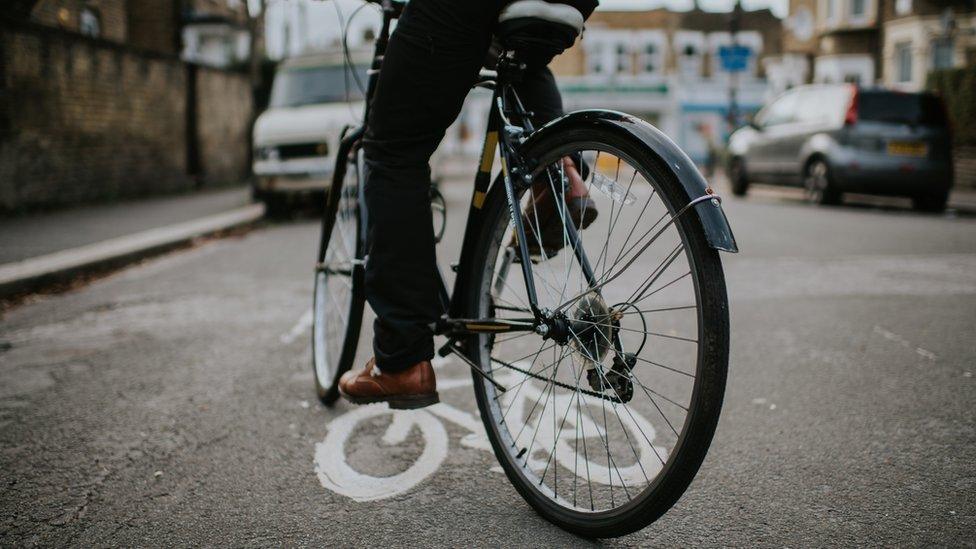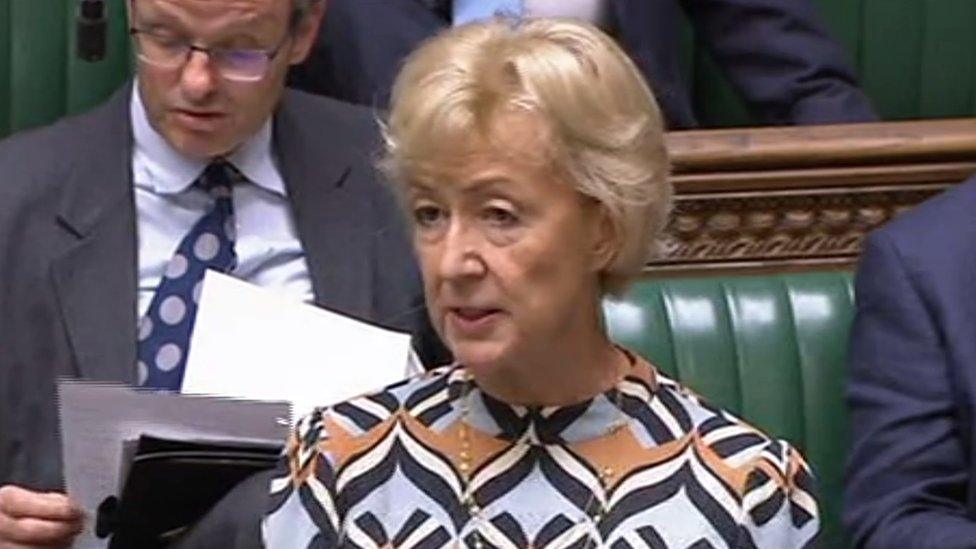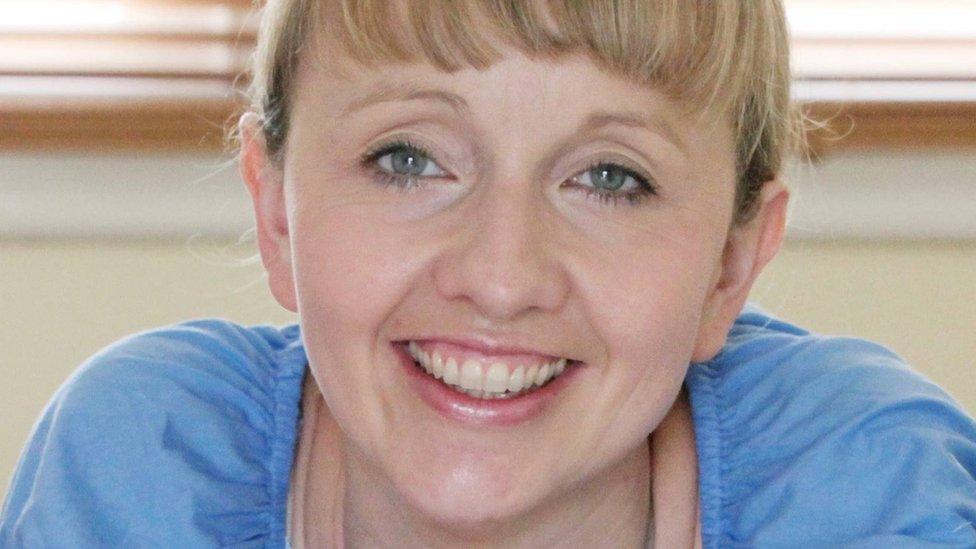Death by dangerous cycling set to become offence
- Published

Causing death or serious injury by dangerous or careless cycling is set to become an offence, after the government agreed to a change in the law.
Under the change, dangerous cyclists could face up to 14 years in prison.
It followed campaigning by Tory MP Iain Duncan Smith who said cyclists should be accountable for reckless behaviour.
The law change will be introduced after Sir Iain proposed an amendment to the Criminal Justice Bill, which is currently going through Parliament.
Speaking in the House of Commons, the former Conservative leader said his proposal was not "anti-cycling".
"Quite the opposite, it's about making sure this takes place in a safe and reasonable manner," Sir Iain said.
He raised the case of Matthew Briggs, whose wife died from head injuries following a collision with a cyclist in London in 2016.
Sir Iain told MPs that Mr Briggs' attempt to get a cyclist prosecuted "involved a legal process that was so convoluted and difficult" even the presiding judge raised concerns and said the laws "needed to be addressed".
His proposed amendment creates an offence of causing death or serious injury by dangerous, careless or inconsiderate cycling.
He said it would "achieve equal accountability" adding: "Just as drivers are held accountable for dangerous driving that results in death, cyclists I think should face similar consequences for reckless behaviour that leads to fatalities."
Backing the change, Transport Secretary Mark Harper said: "Most cyclists, like most drivers, are responsible and considerate.
"But it's only right that the tiny minority who recklessly disregard others face the full weight of the law for doing so."
Speaking to the BBC earlier this week, Duncan Dollimore from Cycling UK said he had "massive compassion" for people who had lost family members in collisions but that he did not believe there was a "huge gap" in the law.
He said incidents were rare but that cyclists who had caused deaths had been charged, convicted and sent to prison under existing legislation.
Chris Boardman, the cycling and walking commissioner for Active Travel England, told BBC Radio 5 Live there was a greater need to focus on deaths and injuries caused by motor vehicle collisions.
The former Olympic cyclist said: "Everyone should obey the law of the road but there are more people that will be killed by cows and lightning than by cyclists... That's the context and perspective I'd like to put back into this conversation."
'Cuckooing'
During debate of the Criminal Justice Bill, the government also confirmed it was accepting a number of other amendments from backbench MPs including one that strips child rapists of their parental rights.
Labour MP Harriet Harman proposed the change after a BBC report of a mother who spent £30,000 trying to prevent the father of her child, a convicted paedophile, from having access to their daughter.
Home Office Minister Laura Farris confirmed the government would also accept an amendment introducing tougher sentences for people who sexually abuse dead people.
The proposal was brought forward by Conservative MPs Greg Clark and Dame Tracey Crouch - who represent constituencies in the area where David Fuller worked.
Between 2007 and 2020, Fuller abused the bodies of more than 100 women and girls in Kent hospitals.
Ministers also agreed to calls to create a criminal offence for the practice known as "cuckooing" where a person takes over a vulnerable person's home for illicit purposes.
MPs will continue to debate the Criminal Justice Bill,, external after which it will head to the House of Lords.

What is your reaction to the new offence? Get in touch by emailing haveyoursay@bbc.co.uk, external.
Please include a contact number if you are willing to speak to a BBC journalist. You can also get in touch in the following ways:
WhatsApp: +44 7756 165803
Tweet: @BBC_HaveYourSay, external
Please read our terms & conditions and privacy policy
If you are reading this page and can't see the form you will need to visit the mobile version of the BBC website to submit your question or comment or you can email us at HaveYourSay@bbc.co.uk, external. Please include your name, age and location with any submission.
Related topics
- Published13 September 2023

- Published4 April 2024
- Published24 August 2017
